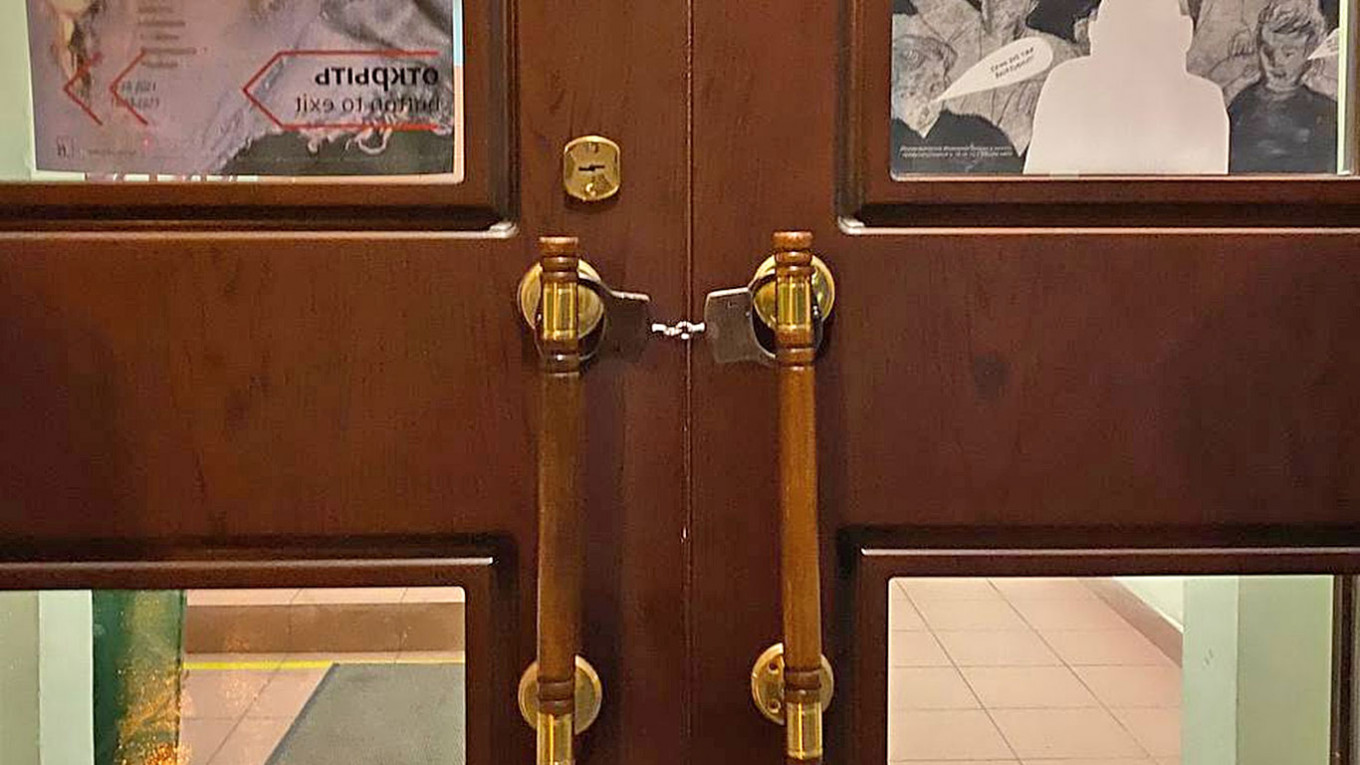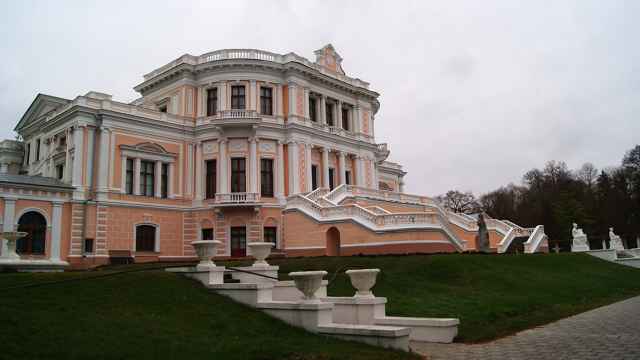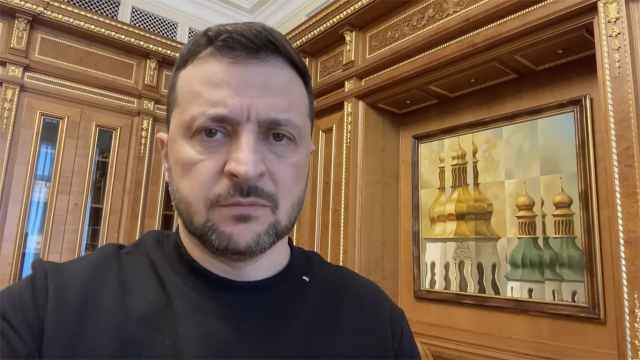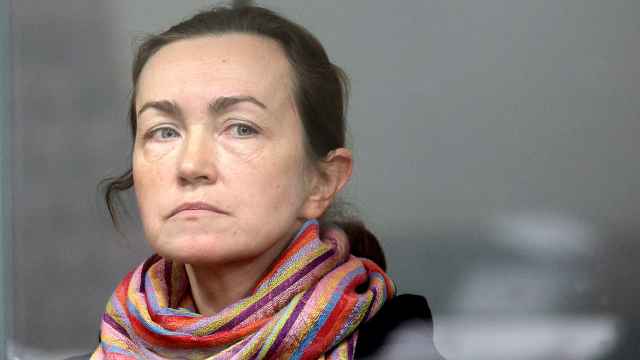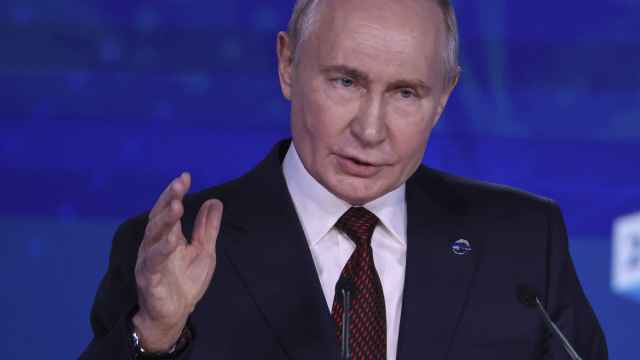A group of masked men stormed the offices of a renowned human rights organization in Moscow on Thursday evening to disrupt the screening of a film about the Holodomor — a brutal famine, widely recognized as man-made, which killed millions of peasants in Soviet Ukraine during the 1930s.
Witnesses filmed around 30 unknown individuals barging into the office of Memorial, a group which documents Soviet-era repressions and victims of Josef Stalin’s Great Terror, shouting “fascists,” “shame” and telling viewers to leave because “the screening is over.”
When police later appeared, they handcuffed the entrance doors to Memorial’s office and locked its staff and attendees inside for several hours, the group’s lawyer said. They also dismantled the office’s fire alarm system and took away a video recording device, the independent Novaya Gazeta paper reported.
The film being shown was Polish director Agnieszka Holland’s “Mr. Jones,” released in 2019. It tells the story of Welsh journalist Gareth Jones, one of the first Western journalists to report on the 1932-33 Ukrainian famine, known as the Holodomor.
“Of course [the attack] was against Memorial and not the film,” Memorial spokeswoman Natalia Petrova told Reuters. “The film was just a pretext,” she added.
Russian authorities have for years attempted to thwart Memorial’s work, activists say, including through fines and searches of their premises across the country. Several Memorial activists have been imprisoned on what the group says are politically motivated charges, including Oyub Titiev, head of Memorial’s office in Chechnya and Yury Dmitriyev, head of its Karelian branch.
Scholars estimate between 4-7.5 million people were killed in the Holodomor, a man-made disaster that Kiev and a handful of other countries have declared a genocide. Moscow has rejected those assertions and interpretation of the causes of the famine has remained a wedge between the two countries.
The screening of “Mr. Jones” comes at a sensitive time for relations between Russia and Ukraine, amid the protracted war between Ukrainian government forces and pro-Moscow separatists in eastern Ukraine.
Memorial lawyer Natalia Morozova accused police of allowing most of the men who had stormed the group's offices to leave without being questioned.
They “didn’t show much zeal to detain even those who they managed to catch,” Morozova told the RBC news website. She added that police conducted lengthy interrogations of viewers and Memorial staff, forcing them to stay inside and provide detailed written statements. Lawyers were only allowed inside around midnight — four hours after the disruption — with staff and police on site until at least 1 a.m. Moscow time.
Russian authorities labeled Memorial a foreign agent in 2014. The designation imposes onerous financial auditing requirements on the group and forces it to add public disclaimers declaring itself a “foreign agent” to every one of its publications. The organization was founded in the final years of the Soviet Union, during a period of openness ushered in by Soviet leader Mikhail Gorbochev.
A Message from The Moscow Times:
Dear readers,
We are facing unprecedented challenges. Russia's Prosecutor General's Office has designated The Moscow Times as an "undesirable" organization, criminalizing our work and putting our staff at risk of prosecution. This follows our earlier unjust labeling as a "foreign agent."
These actions are direct attempts to silence independent journalism in Russia. The authorities claim our work "discredits the decisions of the Russian leadership." We see things differently: we strive to provide accurate, unbiased reporting on Russia.
We, the journalists of The Moscow Times, refuse to be silenced. But to continue our work, we need your help.
Your support, no matter how small, makes a world of difference. If you can, please support us monthly starting from just $2. It's quick to set up, and every contribution makes a significant impact.
By supporting The Moscow Times, you're defending open, independent journalism in the face of repression. Thank you for standing with us.
Remind me later.


